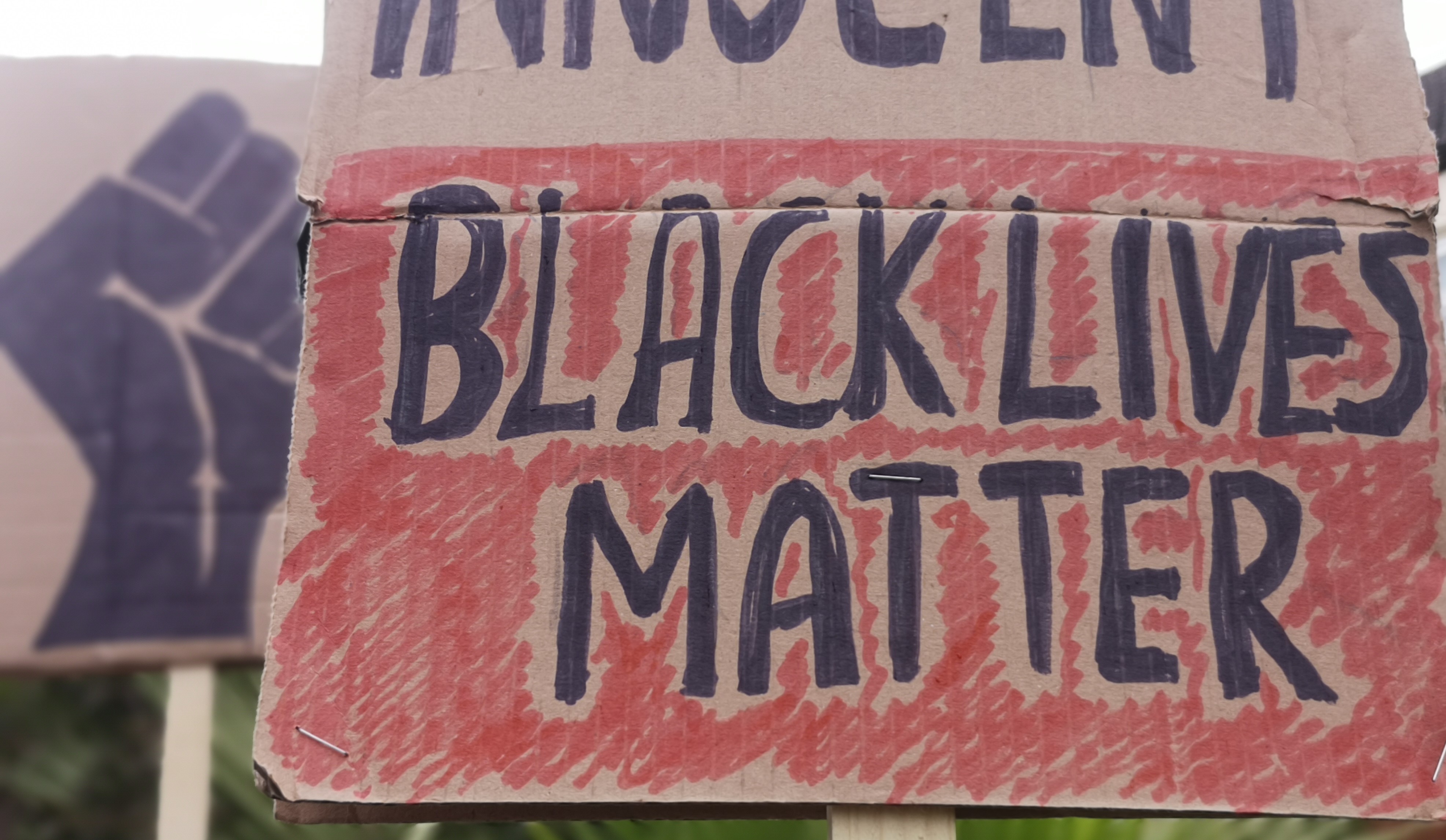I, like many of you, have been reading about and watching videos on the riots, the police brutality, the incidents of racial injustice and racially motivated violence of the last several weeks linked to the murder of George Floyd by US police in Minneapolis.
This makes me deeply sad and deeply angry. Angry that racism is still a feature of American society, and not the case of ‘a few bad apples’ as some are suggesting; it is an endemic, systemic part of America, a rot that sits just below the surface of a country that was supposed to be built on pluralism and equality. Angry at the lack of US leadership on the killings of George Floyd, Breonna Taylor, Ahmaud Arbery, and many others, about the targeting and profiling of black people more broadly, or even a shred of understanding of how to stop the violence. Angry that black and indigenous people of colour experience the same treatment here in the UK and in many other countries that we work in. Angry that even after years of dialogue, of activism of education about racial discrimination and injustice, little has changed.
I realise that, as a white American, my reactions are personal and specific to my background; these events will affect each of us differently.
And that made me think about Start Network and our role.
As an organisation and network, we are in a position to effect positive change in the societies in which we operate. And with this position comes both individual and collective responsibility to challenge reductive narratives about why the world is as it is, and apply this thinking into our plans and strategies for change. Only by fully confronting the status quo, and our position within it, will we shape the future.
As a network, fundamental to our vision is shifting these privileges and power. And we recognise the link between the system’s power imbalances and racism, as pointed out by many other sector thinkers, writers and leaders. We are taking the following initial steps to work with our members and our Hubs to take deliberate action, affirmative action to radically reorient the humanitarian aid sector to be more local, more inclusive, more representative of and attuned to communities affected by crises.
- This week the Hubs launched a bold paper aimed at catalysing a more local response to the immediate needs of COVID-19 and to accelerate a lasting step-change in humanitarian response.
- We are working with members and Hubs to redesign Start Network’s future governance, to ensure a diversity of decision-makers across Hubs and the wider network as we grow;
- We will continue to use Start Network platforms, our Assembly and relationships to condemn racism, discrimination, colonialism in the societies where we work.
- As part of this, we are compiling a list of resources and readings on racism in the sector and beyond.
And as an organisation, I have asked each member of the Start Network team to recognise and use their position against the type of behaviour we see in the United States, in the UK and in other parts of the world today. We are also taking the following initial steps:
- We will work to amplify black and brown voices, actions and achievements within the team and together with our members and our Hubs
- Since the beginning of the year, we have been testing out recruitment channels The Voice and Diversifying to attract more diverse candidates, particularly those from the black community.
- More recently, we have been using Applied, a recruitment platform that removes unconscious bias.
- We have organised a series of town hall meetings for staff on trust, diversity and inclusion and have been working with EDI (equality, diversity and inclusion) experts to explore conscious and unconscious biases in our decision making.
- We recognise that there is more to do, that developing an anti-racist organisation must be an ongoing commitment to listening, to acting and to holding ourselves to account to our values and the commitments we’ve made.
We are Start Network: We are inclusive, we are open, we are brave.
Let’s show our solidarity for all that face injustice, living these values in our actions, in our words, in how we treat each other and in the changes we are able to make through our work. To do nothing would be to condone the type of behaviour we have seen and continue to see in the United States, in the United Kingdom and in many other countries in the world.

